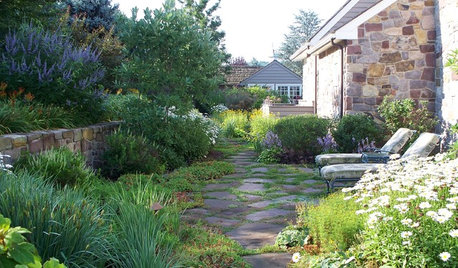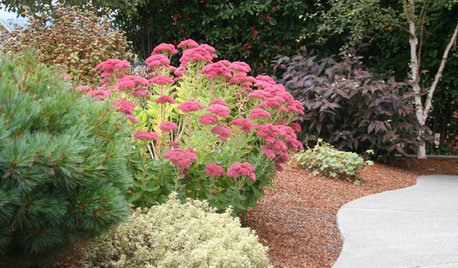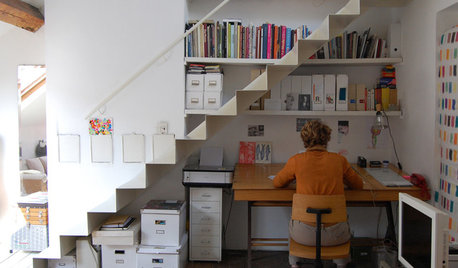Hello everyone. I am new here. I have been giving serious thought to getting into the gardening business. My business plan is unique, so I wanted to spell it out and see what you all think. I have been studying threads like this, but what I want to do is slightly different.
Okay. So I want to design and install vegetable gardens/forest gardens/edible landscapes/permaculture systems. I know. I have heard the counter arguements. There is no interest. People who want veg gardens tend to do it themselves. Tend to be penny pinchers to begin with, don't want to pay up. ETC. This is true, but there are those mountains and mountains of people popping up who just don't know where to start, especially now, and especially in a urban areas (where I do currently reside). I believe my business plan will cater to these folks, by focusing on education.
Let me explain WHY this MIGHT work. Key points follow.
1) Biggest key point. No initial labor/consultation costs to the customer. Customer pays for materials/plants/perhaps my gas. Except in cases where the work requested is, well... exceptional. I may charge some sort of fee if I give an extended consultation and the customer backs out. A deposit perhaps?
2) The "payment" is exacted in the form of the harvest. I was thinking I would take half of the harvest to be taken to market in exchange for the services provided.
3) A focus on education. I might be able to charge for "workshops", or offer them for free in order to get no-cost labor in exchange for extra hands on the job site. They get an education, I get free labor (or maybe even charge a small amount) Meaning if I design an installation that does not seem feasible or practical to install on my lonesome, I could get some extra hands on site in exchange for explaining the layout, the plants, the proper techniques, the design process, maintenance, etc.
4) Keep in mind I am a permaculture practicioner. We aren't just talking monocropped beds. We are talking multi-layered gardens whose elements might include sheet mulches, insectaries, companion plantings, organic pest control, composing, greywater systems, native plants, micro-livestock, crop rotations, biointensive and biodynamic principles, microclimates, etc etc. Hell I can even go into cob buildings and aquaculture or plant trees specifically oriented to cool the house in summer and let in sun during winter. "Grow your food and reduce your heating bills". Permaculture. So what I have to offer in the form of education is not just "This is a row of onions here, this is a row of tomatoes, those are sprinklers for water" etc. It's very design intensive but self-maintaining when properly implemented. I think this fact will help me to attract not only customers but student volunteers.
5) I need to do more research, but I may go the non-profit route. I can still get paid a fair wage for my work, I simply won't become a millionare if it takes off. (Fat chance.) Thats all fine and well with me. If I go non-profit, there are many incentives, the customers love to hear it, and more of the money can go back into the business rather than into taxes. This would make me more of a community-centric service than a for-my-own-gain business, which like I said is all well and good with me. I would also be able to accept tax-deductable donations. Going non-profit wouldn't work at all for a mow and blow, but this is quite different. If lots of people jump on, something like this can make a huge positive difference on many fronts. I don't think anyone would have trouble seeing this as a charitable organization.
6) As far as garden maintenance goes. I was thinking the customer could go one of two routes. Either pay me hourly to do it as needed, or agree to do it themselves if I will give them some initial guidance as well as phone/email consultations and stoping by here and there to check up/fine tune. The second option allows for the customer to get a free education as well.
7) This can expand to more than just gardening. I can install solar panels, build livestock enclosers, install greywater systems, composters, ponds, cob ovens, straw bale or earthbag garden houses, etc etc. I don't have plans for this, and I don't plan to offer these sorts of things from the get-go, but they fall into the same category and I have a good amount of experience with them. These are just avenues for expansion.
I think that kind of covers it.
Keep in mind, if I go the non-profit route and can manage to "turn a profit", from either donations or business, it is required that any money above my salary and costs be returned into the business or donated to another non-profit. Meaning I can never pocket it. The interesting thing about that, is IF and WHEN that happens, that extra money is pretty much going to show up as savings to the customer and work for the rest of the community, in the form of private contracting or w/e else. I could even use it to host free education events, contract out work. Keeps money in the community, etc. I may even be able to offer to "subsidize" the initial installation cost, by paying some of the materials costs, especially at lower income levels. (If the money is there and HAS to get used, why not? I certainly wouldn't lose money, although I might break even on that particular plot. Also, this would certainly seem charitable.)
If I go non profit, my possible avenues for bringing money into the business are multiplied. The list, as far as I have deduced is.
1) Income from sold produce (meager, admitedly)
2) Income from "workshops" and other education (Not horrible)
3) If non-profit, no taxes
4) If non-profit, tax-deductable donations
5) More intensive contracted work which is not strickly "horticultural" in nature
I don't know, from the standpoint of the customer.
Lay it on me!
Tell me it wont work! haha. So my brain can stop running.
My thought process is if you tell someone "I will put in the garden, you get produce, you get education, you get to contribute to the community. Whatever I take gets sold to the community at farmers' markets, the money stays in the community, even my own salary. I'll even harvest it for you. All you do is pay for materials. We are a non-profit organization and our primary interest is getting people on this bandwagon and getting food grown at human scale, in the communities that consume it."
I don't see that many people who would say no.
"This is going to be a helluva lot of work" It's what I love doing.
















marcinde
Seastar501
Related Professionals
Lyons Landscape Architects & Landscape Designers · Surprise Landscape Contractors · Waterbury Landscape Contractors · Aberdeen Landscape Contractors · Bound Brook Landscape Contractors · Cary Landscape Contractors · Desert Hot Springs Landscape Contractors · Galveston Landscape Contractors · Hayward Landscape Contractors · Oak Forest Landscape Contractors · Oxnard Landscape Contractors · West Orange Landscape Contractors · Tyngsboro Landscape Contractors · Alexandria Driveway Installation & Maintenance · Grand Rapids Driveway Installation & Maintenance